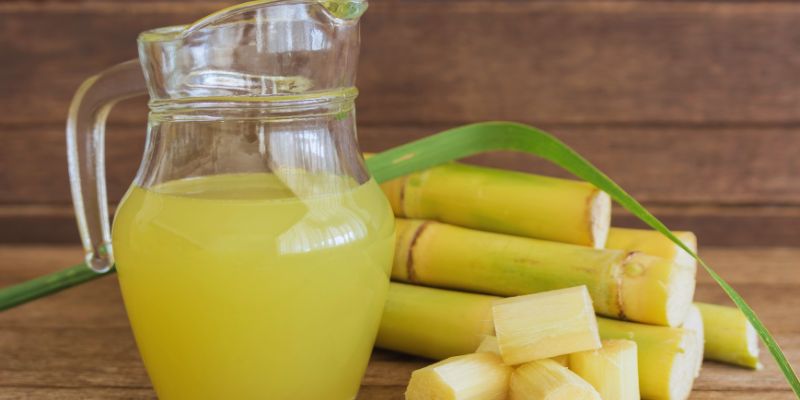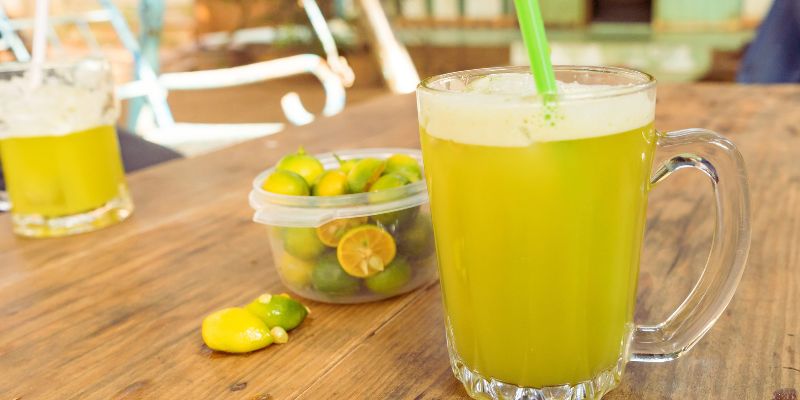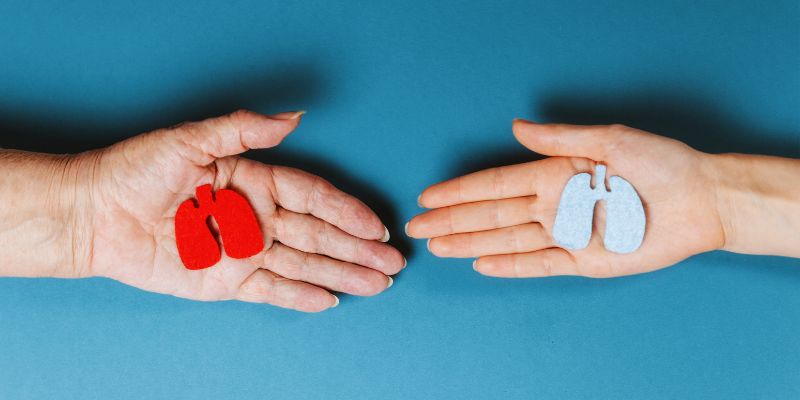Is Sugarcane Juice Good Or Bad For Diabetes: A Complete Understanding
Managing Diabetes requires cautious food selections meant to control blood sugar levels. Sugarcane juice is among the foods that people argue most about. Though a natural and reviving beverage, it contains simple sugars. That raises the question: Do people with diabetes drink sugarcane juice? Could it generate spikes in blood glucose?
Making wise decisions depends on an awareness of how sugarcane juice affects diabetic health. With an eye on how sugarcane juice influences blood sugar levels, this article explores whether it might be good or detrimental to the management of Diabetes.

Sugarcane Juice: Nutritional Profile
A popular naturally occurring beverage derived from sugarcane stalks is sugarcane juice. Rich in vital nutrients, it features minerals including potassium, magnesium, calcium, and iron and vitamins like vitamin C and B6. Antioxidants also offer support immunity and help fight inflammation. Still, sugarcane juice is mostly made of natural sugars despite its significant nutritional value.
The high sucrose content in a single dish can affect blood sugar levels, which raises questions, especially for those with Diabetes who must maintain steady blood glucose levels. Although sugarcane juice has several health advantagesdigestive help, bodily hydration, and energy boostpeople with diabetes may find it problematic given its high sugar content. Whether sugarcane juice fits into a diabetic-friendly diet depends on balancing its possible hazards with its nutritious value.
How Sugarcane Juice Affects Blood Sugar Levels?
Diabetes patients mostly worry about how sugarcane juice affects blood sugar levels. Simple sugarsmostly sucrosereadily taken into the bloodstream abound in sugarcane juice. Consumed, this sudden release of sugars can produce a sharp rise in blood glucose levels, leading to hyperglycemiaa dangerous state for Diabetes patients. When a person has hyperglycemiathat is, too much glucose in their bloodthey may have headaches, tiredness, and a greater thirst.
Frequent rises in blood sugar over time could cause issues including renal disease, nerve damage, and heart disease. For persons with Diabetes, drinking sugarcane juice might not be advised, particularly if done in great quantities. Conversely, some contend that sugarcane juice might have fewer negative effects than refined sugars since it is a natural sugar source. Natural sugars still affect the body similarly, though, and they can still lead to blood sugar abnormalities. Therefore, regular intake monitoring is still important.
Can Diabetics Consume Sugarcane Juice in Moderation?
For Diabetes patients, moderation is usually rather important when choosing foods. Although sugarcane juice might not be the ideal choice for diabetics, some would question if modest amounts of it would be okay. Moderation implies that occasionally, in modest amounts, eating sugarcane juice might not do much damage. It depends on personal blood sugar reactions, though, which differ.
People with diabetes who want sugarcane juice safely must closely check their blood glucose levels before and after intake. Occasional intake may be feasible if the body can control a tiny quantity without noticeably raising blood sugar levels. Still, for many, the hazards could exceed the advantages. Before including sugarcane juice in a diabetes treatment regimen, one should see a healthcare professional. Personalized advice is crucial since factors like insulin sensitivity and current blood glucose levels can cause different reactions to foods.
Benefits of Sugarcane Juice for Non-Diabetics
Sugarcane juice can offer different health advantages for people without blood sugar issues. Sugarcane juice is great for rejuvenating the body since it is a natural energy booster, particularly in hot weather or following exercise. Juice's readily digested carbohydrates are rapidly turned into energy; hence, it's a good pick-me-up. Also quite hydrating is sugar cane juice. It's the perfect summer drink or post-exercise rehydration solution since it helps replace electrolytes lost by dehydration and sweating. Potassium and magnesium support electrolyte equilibrium in the body, preserving it and preventing dehydration.
Furthermore, sugarcane juice supports the immune system and lessens inflammation, which is the antioxidant value of sugarcane juice. Antioxidants are important for neutralizing dangerous free radicals causing chronic diseases. Non-diabetics should also drink sugarcane juice in moderation, even if these advantages abound. Although it might not hurt right away, too much sugar intake leads to weight gain, insulin resistance, and, finally, a type 2 diabetes risk.

Alternatives to Sugarcane Juice for Diabetics:
There are various substitutes for sugarcane juice that Diabetes patients seeking better choices to quench their thirst won't trigger blood sugar rises. Among the appropriate choices are:
- Cucumber Juice: Cucumber juice is safe for people with diabetes and hydrates low in calories and sugars.
- Aloe Vera juice: Low in carbohydrates, this drink could assist in controlling blood sugar levels.
- Bitter Gourd Juice: Popular among Diabetes patients for its ability to reduce blood glucose, bitter gourd juice is also really tasty.
- Lemon Water: Lemon water is simple and reviving; it hydrates you and has low sugar.
These substitutes can offer hydration and some nutritional value without the dangers related to sugarcane juice.
How to Balance Sugar Intake in Diabetes Management?
Maintaining steady blood glucose levels for those with Diabetes depends on control of sugar intake. These suggestions aim to help balance sugar intake:
- Choose Low-Glycemic Foods: Choose low glycemic index foods since they release glucose more gently into the system.
- Monitor Blood Sugar Levels: For Diabetes patients, routinely monitoring blood sugar before and after meals aids in their understanding of how their bodies react to various foods.
- Use natural sweeteners sparingly: Though they should still be used in moderation, substitutes like stevia or monk fruit extract can replace sugar.
- Stay Hydrated: Water boosts general health and helps control blood sugar.
Diabetes patients can better control their health and lower their risk of complications connected to high blood sugar by choosing carefully what they eat.
Conclusion:
Ultimately, sugarcane juice is a naturally refreshing beverage loaded with nutrients, but because of its high sugar level, people with diabetes run into danger. It has various advantages for non-diabetics, including hydration, antioxidant support, and increased energy. Nevertheless, it is a less-than-perfect choice for Diabetes patients since even a modest intake might cause blood sugar surges. See a healthcare professional to find out whether it might fit into a diabetes control regimen.












